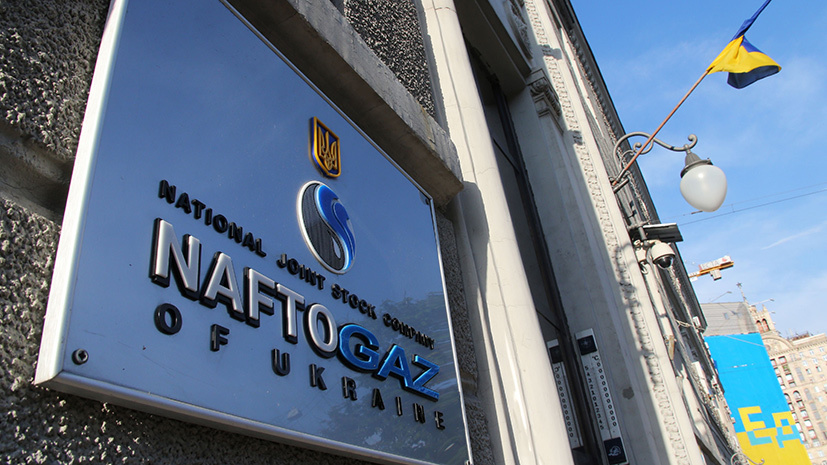Russia and Ukraine continue to work on a gas transit agreement, but the texts so far remain “inconsistent,” wrote Naftogaz’s head Andrei Kobolev on his Facebook.
He noted some progress in the negotiations, but said that "the struggle goes for every comma."
Kobolev explained that an inter-operator agreement is being discussed between the OGTSU (LLC Gas Transmission Network Operator of Ukraine) and Gazprom, a settlement agreement under which Naftogaz and Gazprom recognize the settlement of mutual claims under 2009 contracts, as well as an agreement on organization transit between Naftogaz and Gazprom.
“Here the conditions for pumping gas of the Ukrainian GTS to a certain amount over the next five years are stipulated. Gazprom or another company may pump additional volumes during or after the entire period. It says about the volume, which Naftogaz is ready to provide transit, ”said Kobolev.
He added that, in the opinion of the Ukrainian side, for whatever period such an agreement was concluded, “if Nord Stream 2 is completed, it will be extremely difficult to ensure the implementation of this agreement.” The head of Naftogaz explained that ways to reduce such risks are discussed at negotiations with the participation of company lawyers.
The Russian and Ukrainian delegations in Vienna continue gas talks that began on Thursday, December 26th.
As Vladimir Dzhabarov, First Deputy Chairman of the Federation Council Committee on Foreign Affairs, noted in a conversation with RT, Ukraine is such an unpredictable partner that any development of events can be expected.
“It seemed to me that the issue was actually resolved, and on the weekend they should have left for signing. If this is not so, and the head of Naftogaz writes the truth, then, as I think, a third force intervened. Perhaps if this really happened, the Americans intervened. They didn’t like it, because they incur some damage from such an agreement, ”he said.
Recall that on January 1, 2020, the transit agreement between Naftogaz and Gazprom, which has been in force for ten years, will end. After lengthy negotiations, Moscow and Kiev, with the participation of representatives of Germany and the European Commission, managed to agree on a detailed protocol that spelled out the details of the upcoming new treaty.
According to the head of Gazprom, Alexei Miller, in accordance with the contract under discussion, transit through Ukraine should reach 65 billion cubic meters next year, and 40 billion each in 2021–2024. Gazprom will also sign an inter-operator agreement with OGTSU, and NAK Naftogaz Ukrainy - transport agreement for booking capacities of the Ukrainian gas transportation system.
- © Vitaliy Belousov / RIA News
Miller also emphasized that the parties agreed to settle mutual claims under existing contracts. The Antimonopoly Committee of Ukraine withdrew a claim to Gazprom in the amount of about $ 7.4 billion, and the Russian company, in turn, paid about $ 2.9 billion on December 27 according to decisions of the Stockholm Arbitration Court.
Russian Deputy Prime Minister Dmitry Kozak previously called the new agreement between the parties a “window of opportunity”, and added that Moscow and Kiev in 2024 will be able to return to the issue of extending the transit agreement for ten years if there are no new claims and scandals. He also noted that Gazprom’s payment of $ 2.9 billion to Ukraine by decision of the Stockholm arbitration was a “drop in the bucket” compared to potential risks for Russia.
Igor Yushkov, a leading expert at the National Energy Security Fund, said in an interview with RT that Europeans should join in the negotiations.
“Or is it some kind of PR support to add intrigue, or indeed things can be quite complicated. And here Europeans need to get involved, because it was the Europeans who forced Ukraine to agree. More precisely, even Naftogaz, and not Ukraine, because the Ukrainian government was for compromise outcomes and for signing a transit agreement, and Naftogaz just resisted, ”the expert noted.
In his opinion, if the contracts are not concluded before 10:00 AM on January 1, 2020, then transit may be stopped, at least for a while. In addition, the expert admitted the possibility of “negative surprises” from Naftogaz.
“When they signed the agreement, it was clear that Gazprom would complete the construction of Nord Stream-2 in the near future, and when they signed all protocols on further actions, just a few days later, the Americans imposed sanctions against Nord Stream-2. And this creates certain temptations for Naftogaz to try to disrupt the supply of Russian gas to Europe, or try to negotiate for itself more favorable conditions than those agreed upon in the framework of the trilateral meeting, ”the expert explained.

